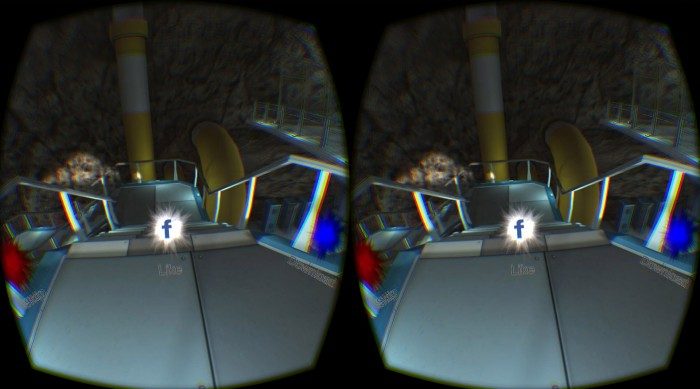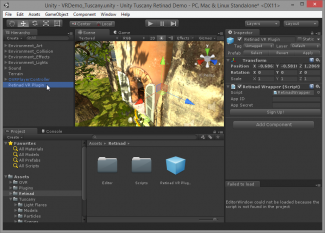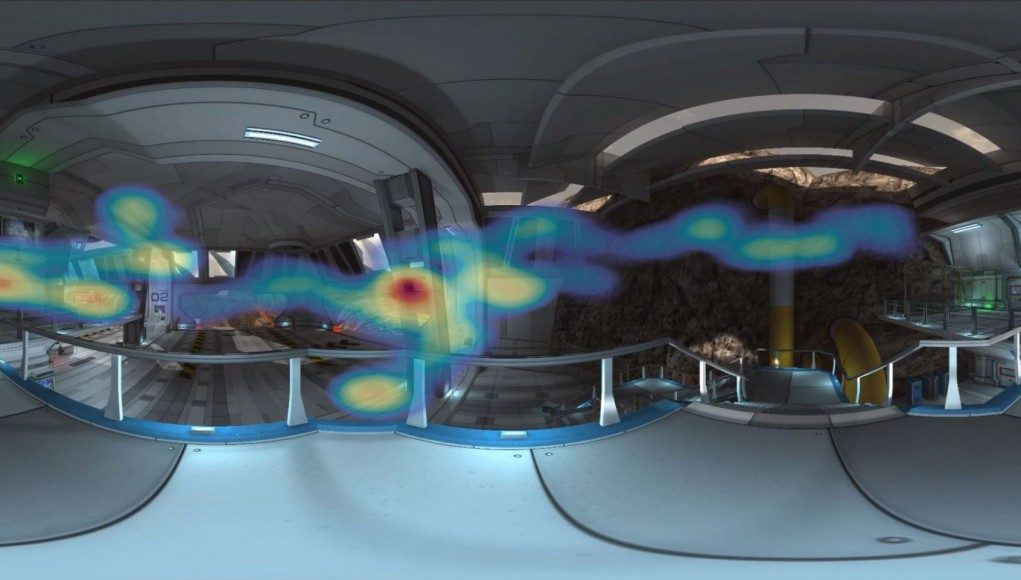Retinad, a company working to bring immersive advertising and analytics to virtual reality, has just closed a $500,000 early-stage round to bring their solution to market. Avoiding the worst case banner-in-your-face approach, the company is jumping feet first into VR, bringing immersive (but not invasive) pre-roll ads and useful analytics tools that could be a hit with developers and advertisers alike.
Regardless of your stance on ad monetization, it’s an important revenue generator that funds the continued creation of content that otherwise wouldn’t exist. Fortunately, Retinad is smartly adapting ads for the medium of VR itself, rather than just plastering banners between users and their content.
The company is primarily pitching a ‘pre-roll’ approach which presents users with an immersive advertisement at the start of the VR game or experience. That ad can be a 360 video or photo, and it includes gaze-based action-points for user interaction like Skip, Like, and More Info.

Retinad co-founders Samuel Poirier and Anthony Guay tell me that the VR app itself can load in the background while the user is experiencing the immersive pre-roll ad. Pre-roll placement is suggested to take advantage of latent loading time, but they say that developers can choose to place these ‘ad sessions’ at any point in their game, such as between levels.
Immersive Not Invasive
What I appreciate to Retinad’s approach to VR ads is that they’re immersive but not invasive—they don’t infiltrate the game itself in the form of annoying banners (the nightmare scenario imagined by most when they hear “VR + advertising”).

The company is also taking an abstracted approach that’s highly scalable. From a developer standpoint, the Retinad ad and analytics system is a simple Unity plugin. Developers don’t need to deal with advertisers, creative assets, or campaign configurations to start monetizing with VR ads. In a way, it’s much like Google Adsense, just plug in a slot and ads will be streamed in automatically.
On the advertiser’s end, Retinad intends to build out a fully functional web portal, allowing advertisers to bid on ad placements and target their VR ads by useful criteria like genre or platform.
Analytics
One of the features I found most compelling about Retinad’s system was their analytic heat maps which allow advertisers to see visually where users’ attention is drawn to throughout the course of the ad.
I saw a demo of this in action running on Gear VR; around me was a 360 degree concert where colored blotches, with red at the center, represented where users tended to look. The blotches moved around the screen in real time as the video progressed, showing what parts of the scene or action were catching the attention of users.
This is a new level of feedback which will be very useful for the advertising industry where it’s common to optimize ads for various metrics. But beyond the advertising industry, this analytic heat map could be even more useful to game developers and content creators.
A heat map of player gaze directions built up over time could offer important insights for developers, especially in the case of Gear VR experiences which are generally stationary and rely on the environment around the user to tell a story.
Visual queues have always been important for directing viewers’ attention in films, and with the world surrounding them in 360 degrees in VR, that’s more true than ever. Folks working out the finer details of directing 360 degree VR cinema would do well with the hard data from Retinad’s heat maps.
In addition to heat maps, the company says their plugin will track other useful data like which headsets are being used to view a given VR experience and how long players are playing.
While it’s true that they’re one of the only groups working on advertising and analytics in VR, I’m impressed with Retinad’s approach. From the insistence on immersive ads instead of banners, to the analytics that advertisers crave, the company seems to be doing the right stuff out of the gate.
And apparently I’m not the only one who thinks so. Retinad has revealed to Road to VR that they’ve just closed an early-stage $500,000 investment to begin scaling out their platform. The co-founders said the investment came from Canadian angel investors and that one of their first uses of the cash will be to bring new hires on board.
Retinad is approaching the launch of their private beta for their ad and analytics platform. The company says that developers who want to give the solution a try should shoot them a message directly and ask to be part of the private beta.







